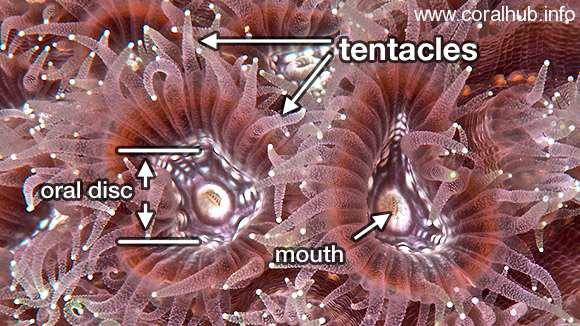Coral reefs are formed by groups of marine invertebrates that live together.
Each individual is known as a polyp. Corals feed by sticking out their tentacles into the water and catching drifting plankton and when they’re inactive, corals protect themselves by withdrawing their tentacles.

Large coral colonies you see are formed over hundreds and even thousands of years as polyp growth rates are extremely slow – up to 1cm per year.
When a polyp dies naturally a new polyp will form over the top. Repeated over many years, this process eventually results in the massive coral formations you will see today. As sea levels rise and fall over geological time the ‘active’ area of the reef changes over time. The white sandy beaches you see around these islands are produced by dead coral broken up over time in to smaller particles of calcium carbonate.
How Does Coral Feed?
Only a fraction of a coral’s food is from what is caught by the tentacles.
Coral’s main food source comes from a symbiotic relationship (mutually beneficial partnership) with photosynthesising algae collectively known as zooxanthellae.
The algae provides a coral with it’s colour. Without any algae, all shallow water coral would be white. The relationship between coral and algae is incredibly efficient, providing the following benefits:
|
Benefits to coral |
Benefits to zooxanthellae |
|
supplied with up to 90% of energy requirements as well as oxygen and aids with waste removal |
safe environment to grow |
|
provided with glucose, glycerol and amino acids for production of sugars, fats and most importantly calcium carbonate for reef construction |
provided with compounds required for photosynthesis |
Written by Henry Collister
Dive Instructor – Quo Vadis Dive resort










